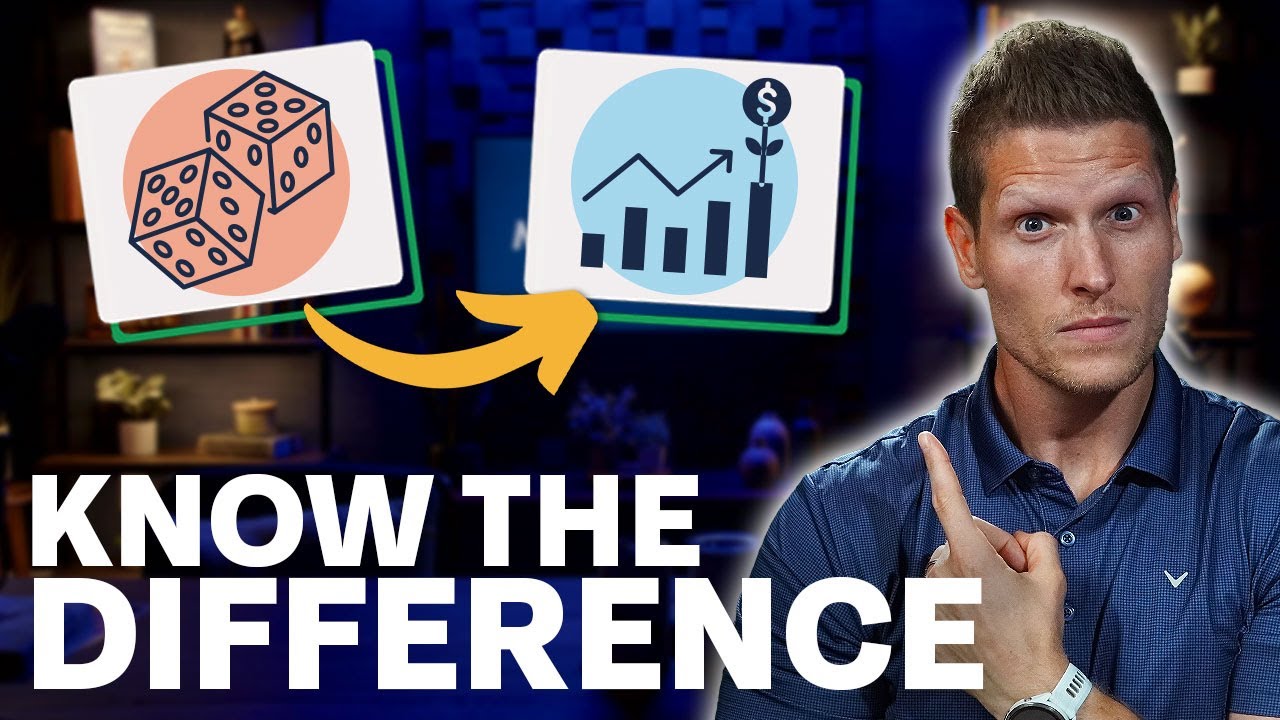Study showed that active investments are better than passive. Is this true? But I am excited to dive into this because it sounds like maybe everything that we thought we knew has changed. Maybe the investment world has now shifted, and something we always thought to be the case is no longer the case. If that’s so, certainly we should tell our folks about it. Now look, I think it’s important to be transparent. We eat our own cooking. I think we need to let everybody know we love index funds. Yep, we’ve talked about index funds for decades. So it’s one of those things where when I see a research study, especially from a professor at a major prestigious university like Duke University, and it starts getting press, and then you guys start sending us articles on it, I sit up in my seat a little bit, and I go, “Well, let’s get to the bottom of this. Are our active managers doing a better job than index funds?” And maybe you are not aware of this, maybe you’re not someone who’s seen this. There was recently a research study that came out, and a lot of article headlines have now been picking up the research study, and you’ll see stuff like this: “Vanguard index funds lose out to its own stock picking fund. The active managed funds at Vanguard are doing better than the index funds.” So, uh-oh, that does not sound like a good thing necessarily.
Well, now, first of all, some of you might be sitting up and going, “Wait a minute, Vanguard has active managers? Why would Vanguard even have active managers on their roster?” So, I thought it was important just to kind of go back and do a little bit of a history lesson. This question was actually asked of Jack Bogle back in 2006 when he was talking to Paul Merriman. And here’s what I think is interesting because Jack, he didn’t mince words. Look at what he said. He said, “One, a lot of investors, no matter how persuasive the case for indexing is, and it’s overpoweringly persuasive, just don’t quite get it. They want a little more activity. They want something to watch. Index funds, as you know, are roughly as exciting as watching paint dry or maybe watching the grass grow. They create great returns, but they’re not that exciting.” So, this was his answer to, “Okay, why does Vanguard make available active funds if you love index funds so much?” And he says, “You got to give the people what they want. If the people want some active funds, they want something a little more intrigue. Well, of course, so we’ll make available those products to the mass public.” So, let’s kind of pivot and talk about, were there any issues or concerns we had with the study once we dug into the case? Well, what they found was, when they actually looked at the study, they found that 11 of the 16, that’s an important number to keep in your mind, 11 of the 16 funds that they analyzed outperformed their benchmarks over the last 10 years. And I think this was 10 years ended at the end of 2022. So, they said, “Uh-oh, it’s overwhelming of the sample that we looked at, 11 of those 16 beat the benchmark. So maybe this is a paradigm shift. Maybe active management is on to something that we thought active management was not on to.” Well, and I want to get into this, and I even want to get that code. I’ll bring it back to talking about why Jack Bogle loved investing in index funds in a second.
But before we did that, I first, I want to draw attention to something. I don’t want people to lose the plot or outsmart themselves. When you talk about investments, it’s important to remember that in the beginning, it’s not the most important thing at all. When you’re just starting your financial wealth-building journey, we argue that your savings rate is exponentially more important than your rate of return. So, you shouldn’t even be asking yourself questions like, “Should I invest in active funds or index funds? How should I approach it?” The number one thing you should focus on is how much you can save and how to save more. You need to figure out how to get more dollars working for you. If you can make an impact on that decision, it will have a much bigger impact on your financial life than trying to figure out which investment option will outperform the other.
Now, let’s get back to the point. If you’re just starting your journey, focusing on this is wasting calories or horsepower. Instead, you should concentrate on how to get as much money working for you as soon as possible. Don’t waste time splitting hairs, because we’ll explain what we mean by that later. I also want to discuss something I’ve known for years regarding active versus passive investments, specifically index funds. There is a bias called survivorship bias that needs to be considered when looking at historical data, especially with active managers. Survivorship bias occurs when a set of data only looks at the survivors and ignores the ones that didn’t make it or failed. By only looking at the survivors, you may draw the wrong conclusions and not get an accurate picture of what caused success over that time period.
This bias has been used for decades. If a fund is underperforming or not attracting assets, it is often closed down and the assets are rolled into more successful funds, which creates survivorship bias. Therefore, it’s important to consider this bias and understand what the research actually shows when you account for it. When you take survivorship bias into account and look at the performance of funds year over year, you’ll find that index funds outperform active management. In fact, studies like the Spiva study show that 93% of all domestic equity funds underperform their index.
Furthermore, the study mentioned in the previous discussion only looked at two low-cost providers: Fidelity and Vanguard. This is interesting because these providers have a unique approach to active management. It’s ironic that they were chosen because if you run a filter on active managers that outperformed, you’ll find that Vanguard and Fidelity are among them. They created low-cost, low-turnover, and tax-efficient active managers to cater to investors who want some activity in their investments but also value index investing. The study’s sample size was small, looking at only 16 Vanguard active funds with inception dates before 2013. If just a few funds had performed differently, the study’s outcome would have changed. Therefore, it’s challenging to claim that active management is better than passive based on such a small sample size.
It’s really difficult to say that active management is better than passive. I think the Spiva study, where we see that 93 percent of funds are underperforming, has a much larger and statistically significant sample size compared to the small sample size the author of this study looked at.
Now, I love the headlines it created because it had a lot of sizzle and a little razzle-dazzle. However, when you dig into the details, I don’t even disagree with the findings. If you follow all the things that index funds excel at, such as keeping expenses low, turnover low, and maintaining tax efficiency, you will find success. So here’s a shortcut for you: do what Jack Bogle does, do what we do, and do what the majority of people who truly spend time educating themselves do. Don’t waste your efforts, focus on building wealth in other ways, and simply invest in index funds. It’s the easiest path to success. By the way, I encourage you to do some due diligence on this. This is why we like to draw attention because everyone has different needs and goals. But if you educate yourselves, I believe you’ll find that focusing on the key tenets of low expenses, low turnover, and tax efficiency brings benefits to everyone.















